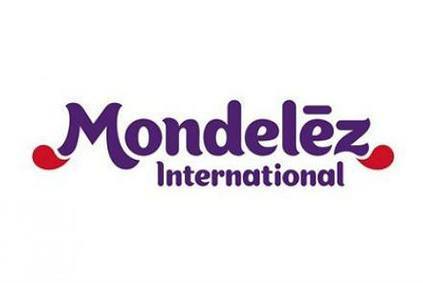
Mondelez International is focusing on its snacks business, cutting costs and separating out its coffee operations in a tie-up with D.E Master Blenders. The strategic shift is likely to reduce volatility and boost margins. But could it also increase the chances that Mondelez will itself become an acquisition target? Katy Askew reports.
Mondelez International revealed yesterday (8 May) that it plans to zero in on its snack business by separating its coffee operations into a new company in partnership with D.E. Master Blenders. Mondelez will retain a 49% stake in the new entity, Jacobs Douwe Egberts, a business that will generate annual revenues of more than US$7bn.

Discover B2B Marketing That Performs
Combine business intelligence and editorial excellence to reach engaged professionals across 36 leading media platforms.
The deal will see Mondelez receive post-tax proceeds from the transaction of $5bn and is expected to be accretive to earnings in the first year following completion.
Perhaps more significantly, it sees Mondelez turn its full attention to its snacking interests, which will generate around 85% of revenues going forward, up from 75% today.
“In addition to unlocking and creating significant value for our coffee business, this transaction will also enhance the profile and prospects of our core snacking business,” Mondelez chief executive Irene Rosenfeld suggested during a conference call with analysts.
Increased focus will enable the group to accelerate global growth of its snack brands, she argued. “Going forward, this sharper focus will help optimise our capital allocation, including investments to drive growth of our global platforms and to expand routes to market,” the executive stressed.

US Tariffs are shifting - will you react or anticipate?
Don’t let policy changes catch you off guard. Stay proactive with real-time data and expert analysis.
By GlobalDataAccording to Bernstein Research analyst Alexia Howard, removing the coffee business from Mondelez’s consolidated results will also reduce the group’s exposure to volatility in the form of fluctuations in coffee commodity prices. “The JV with DEMB seems like a smart way to remove the coffee segment from consolidated results in an earnings accretive way and to reduce revenue and earnings volatility from coffee input prices,” she suggested in a note to investors.
Looking at its snacking portfolio, Mondelez said it is accelerating its bid to reduce costs through a $3.5bn four-year restructuring programme.
The cost cutting initiative will consist of both overhead and supply chain cost reductions, management revealed.
In 2013, the company cut 3,000 supply chain jobs and Mondelez plans to close or sell nine plants and streamline another 21 facilities. However, the firm revealed that it has identified further savings that will feed through to 2020.
As a result, the group raised lower end of its operating margin forecast for 2016 to a range of 15-16%, up from 14-16% and said that it expects significant margin expansion beyond 2016. By 2018, the company predicts that it will generate annualised savings of $1.5bn.
“Together, these actions will enable us to become even more focused and nimble global snacking powerhouse; to achieve world-class margins faster, to simplify how we work around the world, to speed up and clarify decision-making, and to generate the fuel to invest more in our people, in our brands and in our executional capabilities,” Rosenfeld suggested.
However, while Mondelez was upbeat on the impact that increased front-of-store focus will have for its revenue prospects in the long-term, the group lowered its sales outlook for the current fiscal. The company said that it now expects full-year organic sales to rise by 3%, down from previous guidance of 4%, due to slower rates of category growth.
Dave Brearton, CFO, commented: “The category has grown over the last two quarters now around 3%. And so we felt it was prudent to not count on a terrific turnaround and to plan on that for the balance of the quarter. So, it’s not just a quarter one comment, it’s been six months now of about 3% category growth.”
Rosenfeld said that this slowdown in the sector – and the need to deliver on earnings commitments – was a factor informing the group’s strategic shift. “One of the reasons we took the actions that we announced today is to ensure that despite what happens on our top-line, even if trends continue with the same rate, that we have great confidence that we can deliver on the margin target and therefore on our EPS commitments.”
According to management, a tighter focus at Mondelez should enable it to capitalise on opportunities to both grow the top line and improve margin performance more effectively.
Barclays Capital analyst Andrew Lazar adds that it could have another significant side effect. “A more focused snacking entity could well be easier to value and integrate by other potential strategic players,” he suggests.
If so, the move could also pave the way for a potential takeover of Mondelez at some point down the line.
This suggestion is lent added significance given last year’s high-profile push from activist investor Nelson Peltz to have PepsoCo separate its drinks and snacks interests, with the latter then acquiring Mondelez.
While a Mondelez board seat and strides to improve margins ended Peltz’s calls for a merger of the two US snack giants, perhaps a slimmed down Mondelez will prove a more tempting prize for a potential strategic buyer in a consolidating industry.





